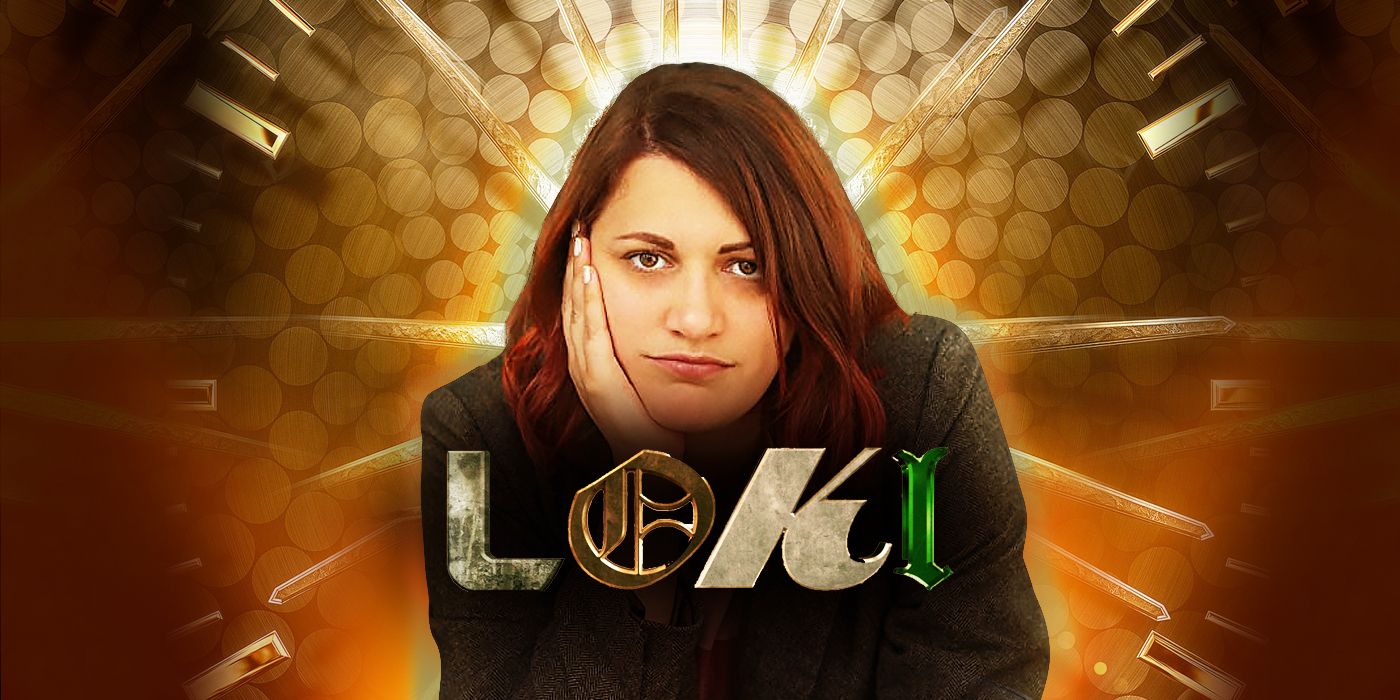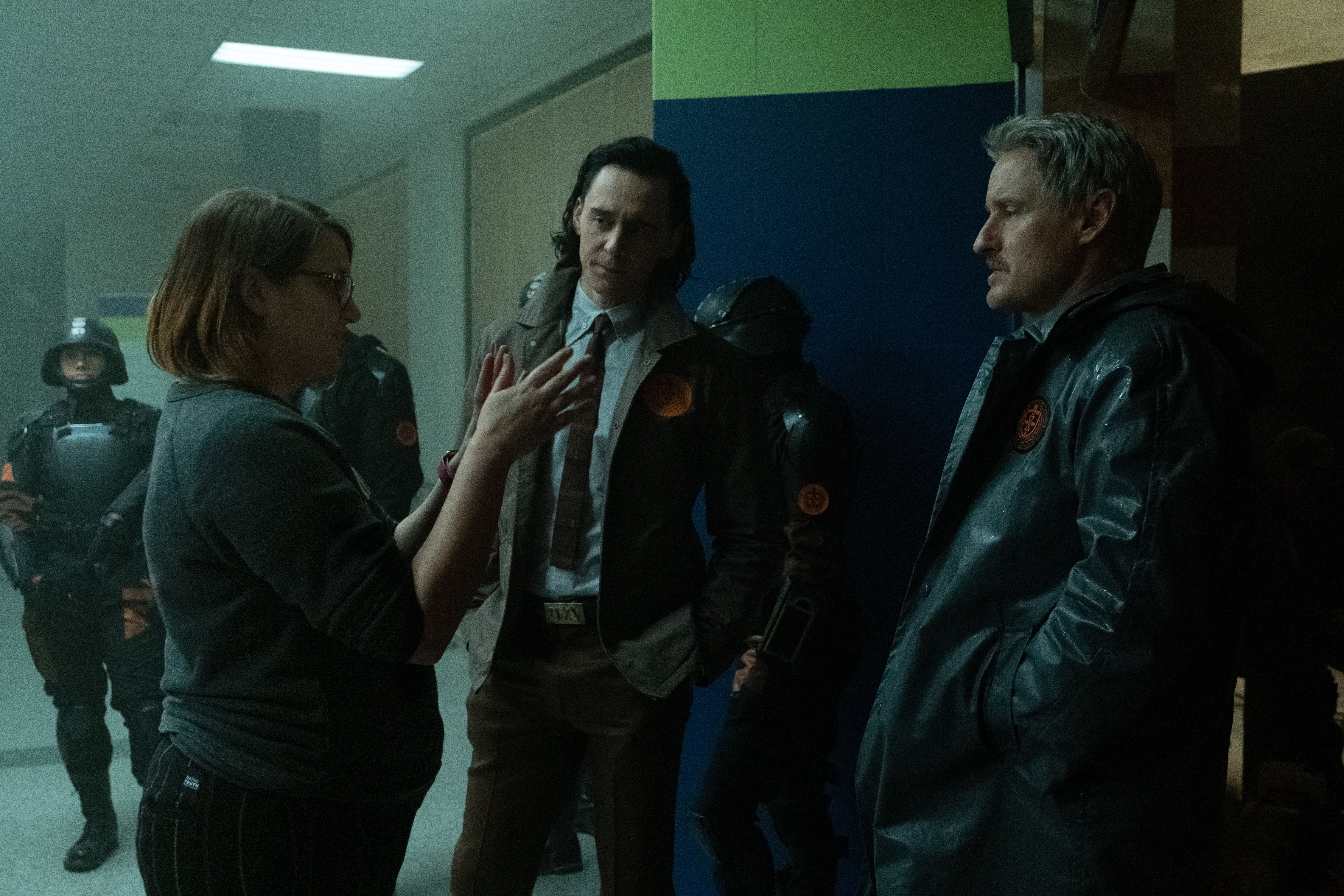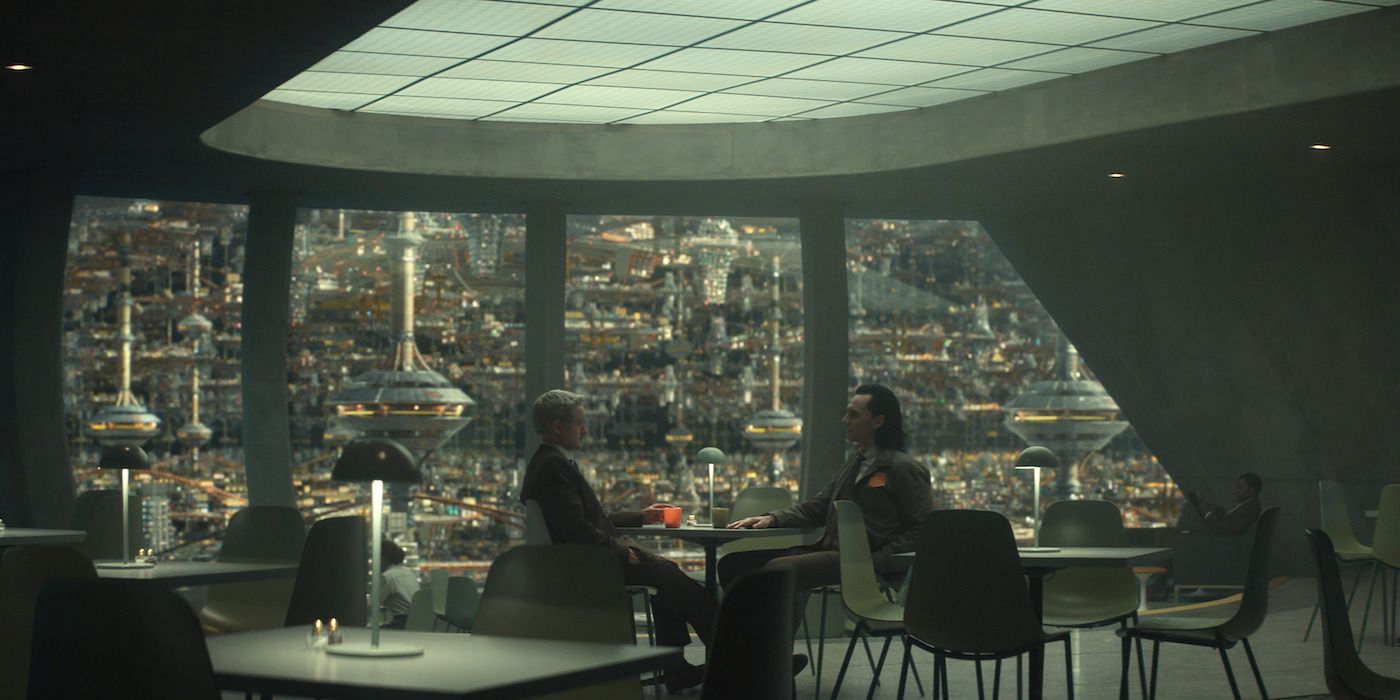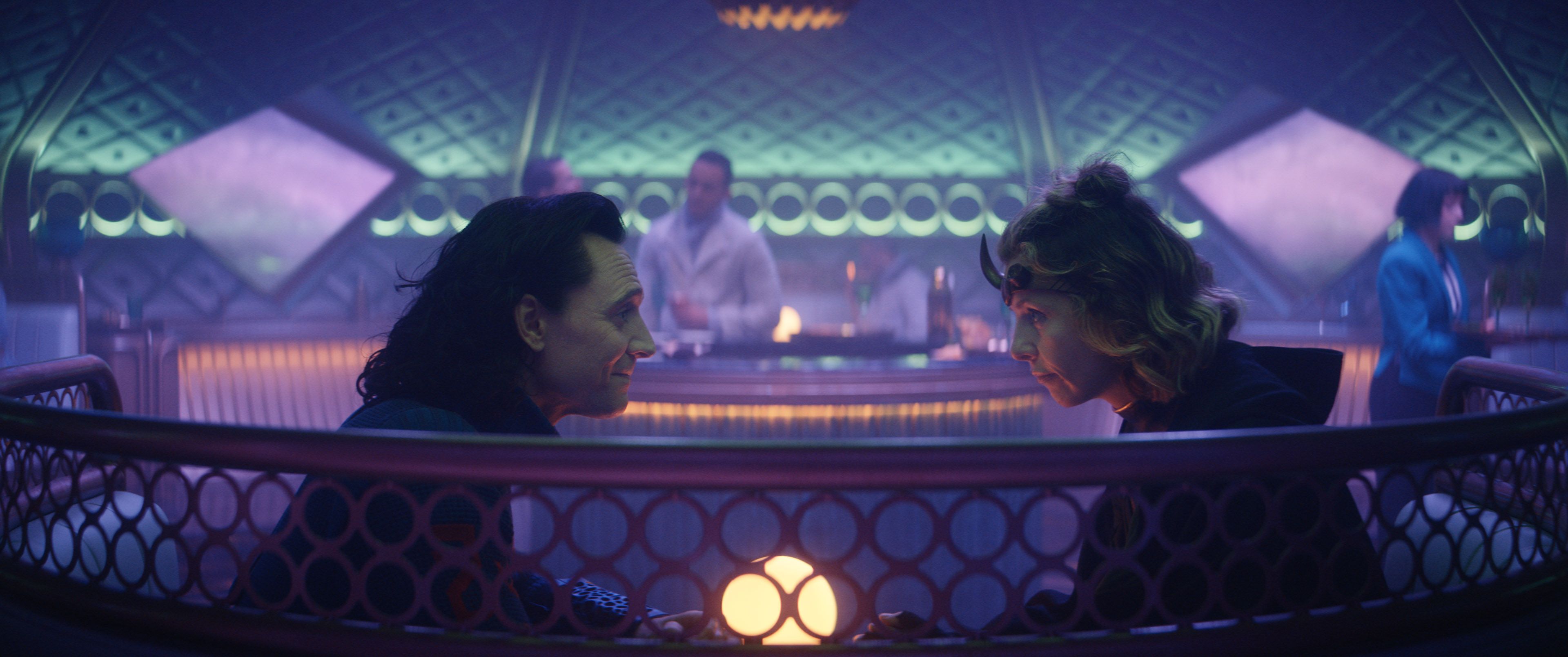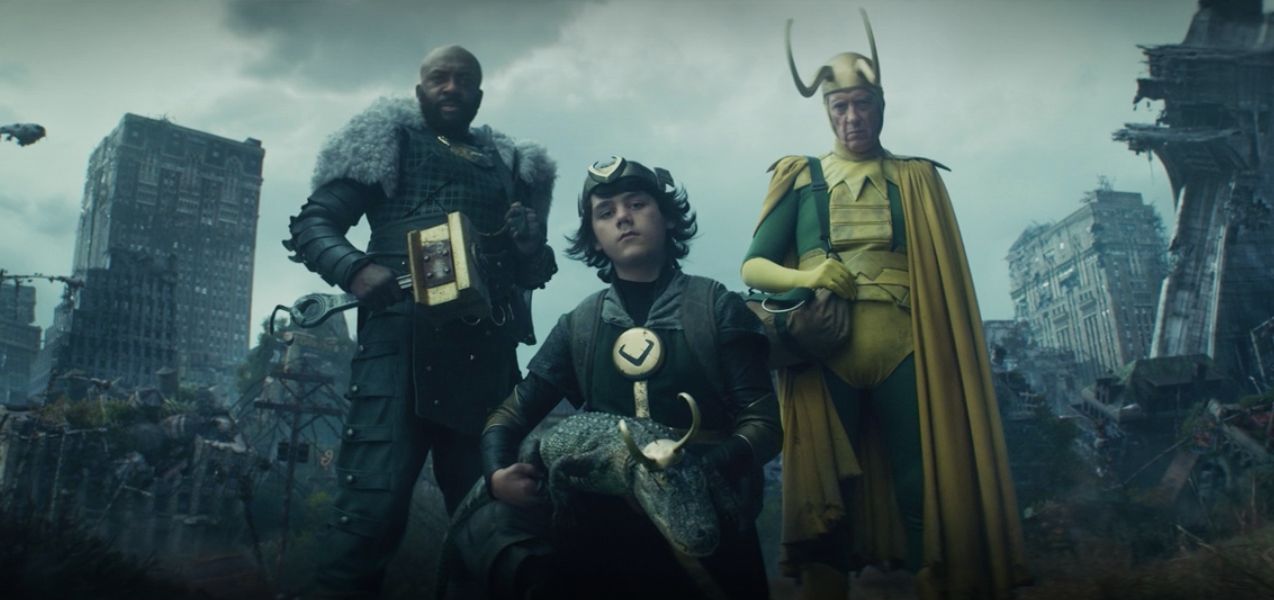Kate Herron knew that when Marvel set out to hire a director to tell the story of fan-favorite antihero Loki, there would be directors with more experience than her pitching. So her strategy was to simply, in her words, create "a big download of my brain" in the form of a pitch document that she says remained remarkably consistent with the finished product — which ended up paying off. "Kevin Feige, I think, said that for him, it opened up the show in a way that he hadn't thought about before. So that's what got me the job," she told Collider in a recent Zoom interview.
Below, Herron talks about what led to getting the job on Loki, from her first big TV job directing episodes of the short-form BBC Three series Five by Five, produced by and starring Idris Elba, to that 60-page pitch she created to convince Marvel that she was the right person to take on the God of Mischief. She also explains what it was like including both positive inclusion of LGBTQ+ representation as well as existentially haunting storylines in the Disney+ series, the origins of that Episode 3 one-er, and reveals which guest star was her original dream casting for a key new character.
Collider: To start things off, I'm very curious about the early work you did with Idris Elba on the series Five by Five — how did that come together?
KATE HERRON: Basically, I knew the script editor on that project and at that point, I was working for the National Health Service as a medical secretary, and I was making a lot of short films and obviously, I wanted to work in TV and work in film, and I was just trying to get my foot in the door. And she was like, "I think you should come in for this. I think you'd be really good for it." So I was like, "Oh, okay."
It was really interesting because my background's in comedy, I'd only really made kind of weird comedy films with comedians in England. And obviously the project I made with Idris is a drama. But I really connected with it. I thought it was so well-written. I obviously really wanted to work with him. And I just remember thinking it would be a really cool challenge as well, just to see what's it like if I direct drama? Because I hadn't done that. And as a writer, I tend to lean more comedy, so I don't tend to write stuff that's more dramatic in that way. So it was really fun, actually, and it was just an amazing experience for me because they gave me a shot on it and it changed my life. It got me an agent. It was my first time working with a proper big TV crew, and it showed that I could rise to that level and I could work with someone of Idris' level as well, as a director, and that we could make something cool together. So that's basically how that happened. There was a very kind person that I'd met along the way, and being like, "Okay, let's get you in to pitch for this."
To be honest, it was sort of similar to what I did on Loki and on Sex Education. I just really wanted it, but I always pitched them my version of it. Because I thought there's no point trying to second guess what people are looking for, because if I'm the right director for it, then I'll get the job. So I kind of went in with quite a clear idea of what I thought the style could be and how it would look, and they were into that. That's kind of, to be honest, the cross of my career, that seems to have carried me. The jobs I've gotten are usually the ones where I go in cold or blind in terms of what they're after and I pitch my take on it.
That's wonderful. I was reading about how you had a 60-page pitch document — if you were to put a percentage on it, how much of it do you actually think made it into the show?
HERRON: I would say at least 80 percent. There were definitely some aspects... For example, I think we weren't sure about the Minutemen — were these cyborgs? Obviously, as people see in Episode 4, me and the writers got to, "Let's give them a past to make them human and people." But I remember my pitch had video of all of these really intense robotic images. So that's probably one of the bits that didn't get in, which I think is definitely better for the story. But now, I would say in terms of design, the lighting, the look... Casting ideas, like Gugu [Mbatha-Raw] was in my pitch, music ideas. I made a playlist and [theremin legend] Clara Rockmore was in my playlist. I think definitely the DNA of what I was going to bring, in terms of me, definitely was all in that pitch.
And then I would say that what you film is never finally what you pitch, obviously, because you bring all these amazing heads of department on and you collaborate with the team. You grow from that together. I would definitely say the kind of base is definitely in there from what I brought, but it evolved obviously, as the story evolved or just production things led to certain things evolving or changing.
Wow, I want to read that pitch document now.
HERRON: Yeah, it's so weird because I'm staying with my family right now, I just haven't seen them in like two years. So I was like, "I'll come stay with you for the summer." And I did my pitch at their house, I remember, because I was living in this one-room apartment with my ex-partner, and I remember that I was like, "I'm going to go stay at my family's for a week just so I don't drive you crazy." Because I was just working on this pitch. And it's weird because it's strange being back in the same house that obviously I did this giant pitch in, but I remember I just canceled everything for two weeks because as a filmmaker, I was always just trying to get my foot in the door or get something.
And I love genre, and I love Loki, and I love Marvel. So it just felt like that opportunity that people talk about — the dream opportunity. So I was like, I've just got to throw everything at it. The pitch to me felt like a big download of my brain, but also just a promise that I can handle this and I can lead this. Because again, every job I've done, it's always been slightly out of my comfort zone, just because I've been lucky to do these jumps, with people knowing I don't necessarily have the experience, but I'm invested in the vision for it. So I think that was just really key for me, and that big pitch document was just being really clear about every aspect of the show and what I could bring to it.
Absolutely. So one thing that's been really interesting about the show is that it's a Marvel show, there's a lot of fun stuff happening, but many of the episodes have contained these subtle moments that, to put it in the words of my coworkers, just give them existential crises. There's Loki confronting his death in Episode 1, there's the climate change subplot in Episode 2 that's very subtle, but also very hard to escape. As a director, what was key to you about finding the right balance to hit with those elements?
HERRON: I think honestly for me, it always comes back to character, right? Because you can put the characters in these fantastical worlds, but I think the characters are what really are going to ground it, and it's all about POV and how we're experiencing these things. The show has a lot of heart in it, which was always really important to me. And just really being on the side with the characters, or maybe not being on side with them, but at least understanding why are they doing what they're doing — I think that was key. And also giving it a grounding of reality. We wanted to talk about climate change in the second episode, but the only way we did that was hidden things in the screens in the background, like the houses. My production designer, he put all the houses on stilts, and obviously it's in Alabama, which there shouldn't be water there, in the way that we have it in Roxxcart.
So there were lots of visual things that we did in that sense — like the prices of boxes of water and blankets and things like that. I guess they always say, isn't it like the devil is in the details? And I think that's something that I knew as well, particularly going into a Marvel project — people are going to screenshot every frame of it. So it's a chance, I think, beyond just fun comic book or MCU Easter eggs, to give little details and try and make these worlds feel lived in and real.
Yeah. I think honestly, the details of Episode 2 are what make it so unsettling. Along with how grim and accepting people just are of what's going on.
HERRON: Marvel, when I got this job, Kevin Feige was like, "I want this to feel like one of our big movies." And I love Spielberg and I think his films I love because the characters are always leading me through that path. You know, Jurassic Park is a film I always go back to a lot — it's a fantastical world, but I care about all the characters in that situation, and then I think in caring about them, it can make it relatable and help me kind of see this heightened world through, not always familiar eyes, but at least eyes I can understand.
So I've talked to a number of people who've worked on these MCU Disney+ series, and they are very complimentary of the collaboration process there. They have plenty of lovely things to say about the whole experience, and I'm sure you do as well. But in making Loki, were there elements that you got some pushback on in terms of perhaps the aesthetics, or the tone?
HERRON: No, honestly, I think the thing is with Marvel and Kevin, like I said, when I pitched, I really went for it in terms of tone and the visuals, and I was very clear on how I saw it. And Kevin Feige, I think, said that for him, it opened up the show in a way that he hadn't thought about before. So that's what got me the job. So in terms of style, I didn't really feel like there was any sort of pushback. I mean, honestly, I think it always comes down, for them and for me as well, what's best for the story? So for example, the one-shot in Sharoo, in Episode 3, I knew I wanted to do something like that somewhere in the show, but I didn't want to do just a one-er for a one-er's sake. And then Sharoo felt appropriate because I wanted the audience to follow along with the characters for the ride in that moment.
I think it was always just, if it's good for the story, we'll make it work. Whether that be us having Sif in Episode 4. Or, like I said, stylistic things, because that one-er obviously took a lot of preparation, but I think because it was justified by story, the studio were on board with it. It was honestly just a really collaborative process. And it was a very unique way to make television because normally television is run through the showrunner system, and Loki was not run like that. Kevin Feige wanted to run it like a giant movie, so I was working with the writers in that way. And I would just say honestly, Marvel is just a very collaborative studio. So I think they kind of invite people that are very collaborative. I found it very creatively fulfilling.
Excellent. You brought up the one-er, which is a great segue to me asking about the fact that it sounds like a lot was built practically — which is a very impressive thing to do in this day and age. What was important to you about that?
HERRON: I think for me, Kasra, and Autumn, I loved working with them both, but something that was always important to all three of us was making these fantastical worlds, or the TVA, for example, feel like a real living, breathing space. And I love films like Eternal Sunshine and Scott Pilgrim because they'll have these amazing practical sets, but in these fantastical worlds where you have characters running from one to the other, and I think that was really important for us. Particularly with the TVA because it's this organization that exists outside of space and time. So I think being able to stay with the characters and do these long takes, it makes a big difference. Like in Episode 1, for example, when Loki and Mobius are in the elevator, we stayed with them, and that was one set. So from the elevator to the Time Theater, that was all there. And then that gave me and Autumn the freedom to be like, "Oh, well let's cover it this way." So no, I think it was always really important to us to just kind of bringing that level of reality to it and then using obviously our amazing visual effects team to enhance everything and build out the world beyond that.
Of course. I don't know why I'm fixated on percentages today, but if you were to estimate what percent of everything set-wise physically exists, what percent would you estimate?
HERRON: Oh, like 90 percent. There are some aspects of the story obviously, which will become very obvious to people, that are heavy for our visual effects team. I would say everything from Episode 1 to 4 so far was like 95 percent, 90 percent. Obviously in Sharoo, the buildings only go so high and then we extended beyond that. It was a real nice marriage between visual effects and practical. I think that's always the dream, right? I think for us, we were pulling from a lot of old-school references, so for me, the practical also lent itself to that style and that look. And I think it's however you use the visual effects and the practical working together to give you story. For us, tonally, it just felt like the right way to go about it.
Excellent. So, shifting gears a little bit, the moment where basically both Loki and Sylvie confirmed that they're bisexual was pretty groundbreaking for Marvel. I know you've talked about that on Twitter a little, but I'd love to hear more about the lead-up to making sure that moment was in the script. And also, do you feel like you can push that further. down the line?
HERRON: I guess I would say on the creation at the moment, it's canon in the comics, he's being written as bi and also pan, and I just wanted to make sure that we were acknowledging that aspect of his personality. Because the whole show is about Loki's identity, and it felt like, well, we should be acknowledging this. When I joined, it was very important to me, and it was also very important to the team as well, like the writers and the studio. So I think for us, it was really just about finding a moment that felt like the right moment for it. I think the train felt good to us because, it's a very raw conversation, they're both opening up about their lives. And I think we wanted to do it in a way... How to explain it? Well, if someone asks me, I would just be very matter of fact about it. I think that was really important to us, just normalizing the fact of him being like, "Yeah, a bit of both." That for us felt very important. I'm very proud that we got it in there and we got to acknowledge that. Yeah, that's what I would say.
Do you feel like if there was a Loki Season 2, you could have a sequence where Tom Hiddleston actually has a romantic connection with a man?
HERRON: Basically I don't know plans for the future with Loki — I'm so focused on this story. But I would say that part of my thinking was, well, if it's canon and it's acknowledged, then yeah I hope there's obviously more road to travel with that aspect of his personality. And I hope it has opened the door to more stories, definitely.
Just to follow up on that really quickly. I was going to wait until the very end to ask you about the future, but I'm curious, if there is a Loki Season 2, would you want to come back for it?
HERRON: I think for me, I'm just so focused on this story and I've been so wrapped up in it for two years. I think I poured every aspect of my soul and my time into the show, and I think for me, that's where my head's at really, is just focusing on this.
Do you have plans for a nice long nap once you get the final episode in?
HERRON: Yeah, I think so. Because I was still finishing the final episode when Episode 1 was airing. So I think for me, it's really just enjoying seeing people like the work, seeing what's connecting with people. And just enjoying the fact the story's out there that we've kind of poured all our hearts and souls into. So yes, that's kind of just where my head's at really, and then, yes, sleeping. Lots of sleeping.
Of course. There's one thing that I know you can't talk about too much, just because it's really going to be followed up on in Episode 5. But I do think I can ask you with no fear of reprisal — what your reaction was to seeing Richard E. Grant in the Classic Loki costume the first time?
HERRON: It was a dream because obviously, it will be explained in the next episode, but it was so much fun. I'm so happy we got him and I think he looks wonderful. I was ecstatic to see him.
Was he always the dream casting for that part?
HERRON: Yeah. He was, yeah. He was our north star and he said yes. So I'm very happy.
To wrap up with this... In the four episodes we've seen already, is there one Easter egg, or joke, or moment that you don't think anyone's caught yet that you think deserves some attention?
HERRON: Just thinking... It's less than an Easter egg, it's more just a cool thing we did. So if people go back and watch when the variant Sylvie is in the shadows. I wanted it to be hard to tell what version of Loki it could be, and so we had a female and male stunt double that we interchanged across those scenes. So that could be kind of fun.
So that's Episode 2?
HERRON: Yeah, so when Sylvie's in her hood, that interchanges quite a bit, particularly in the oil field, I think we changed that around quite a bit. I wanted to keep people guessing basically, so they wouldn't necessarily know it was a female Loki.
New episodes of Loki premiere Wednesdays on Disney+.

